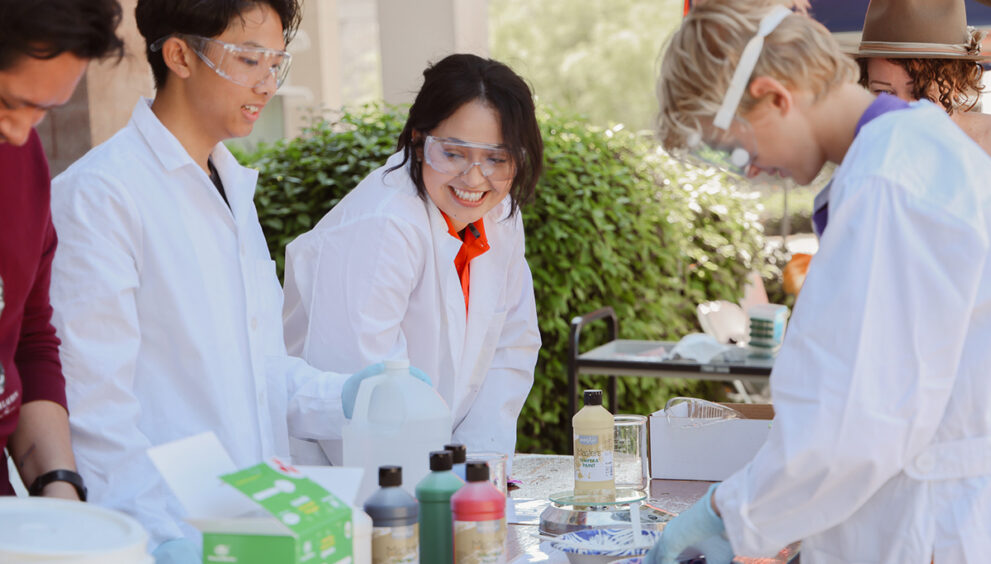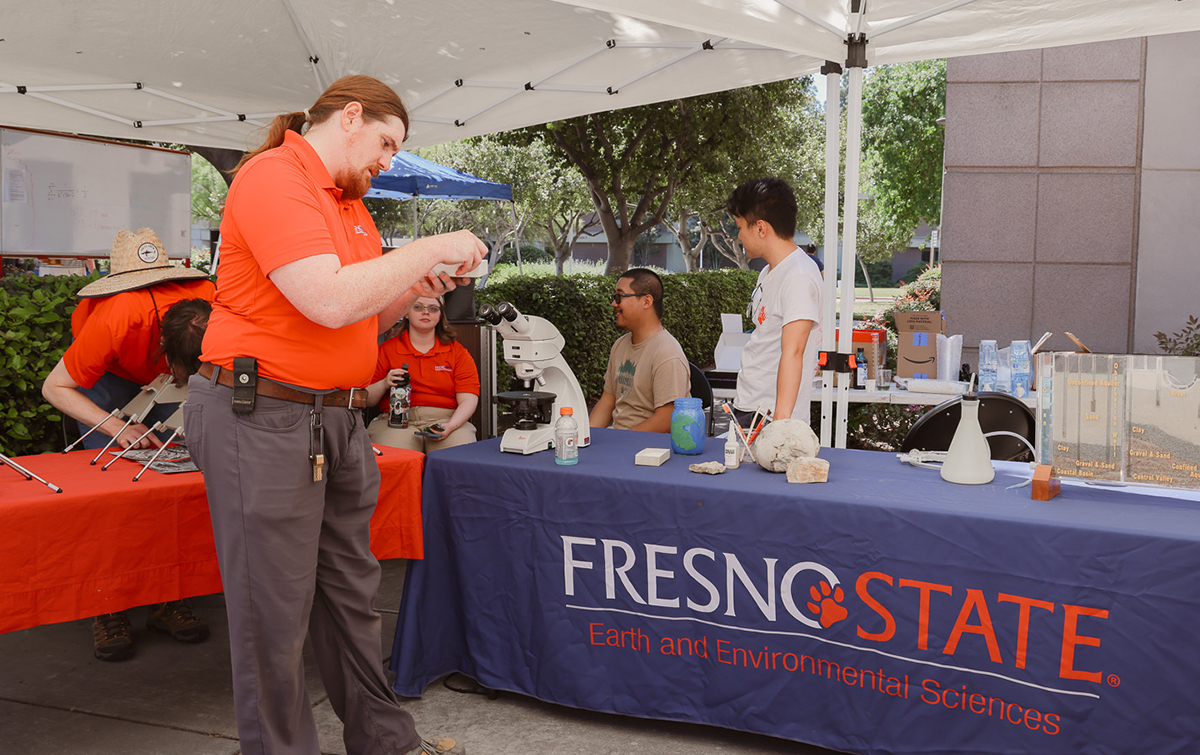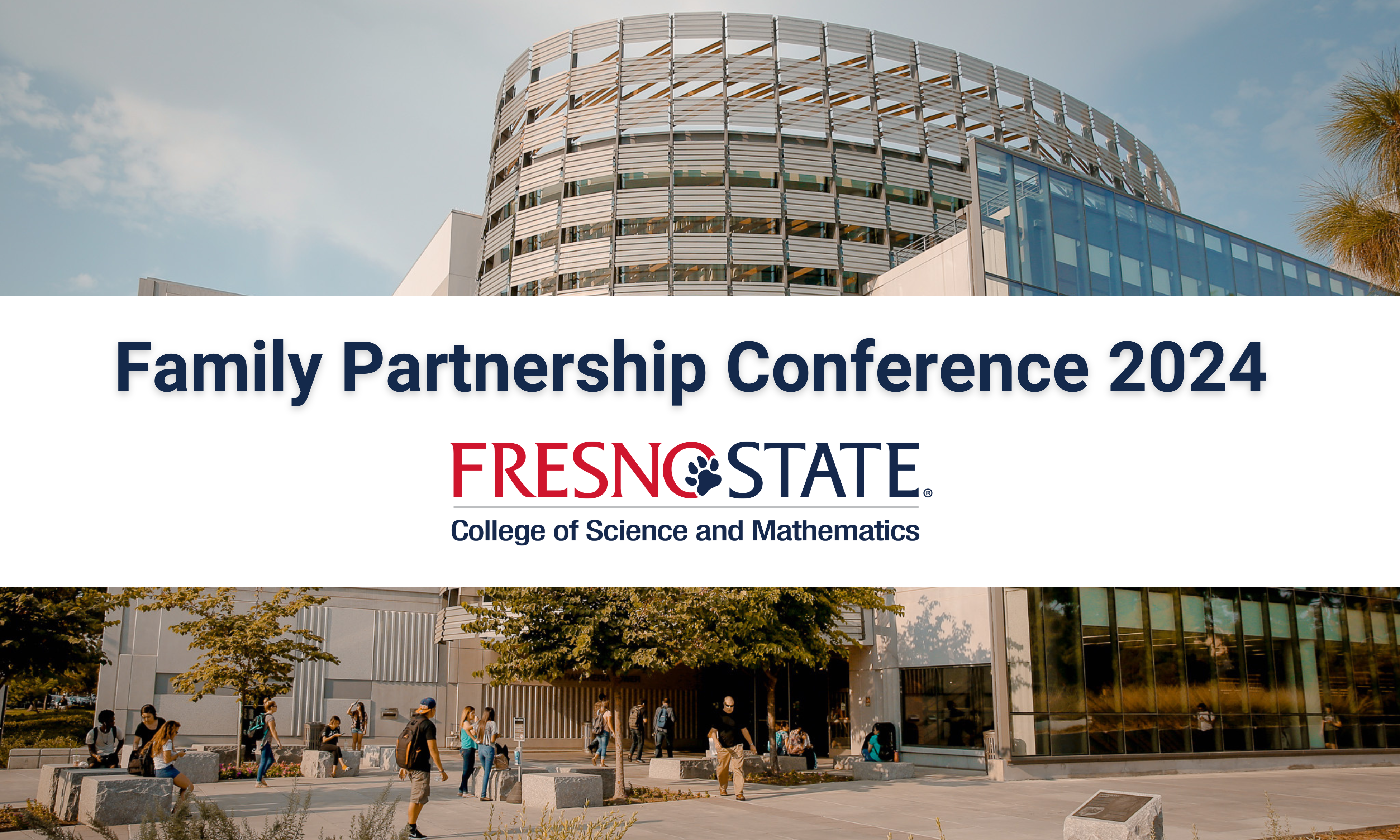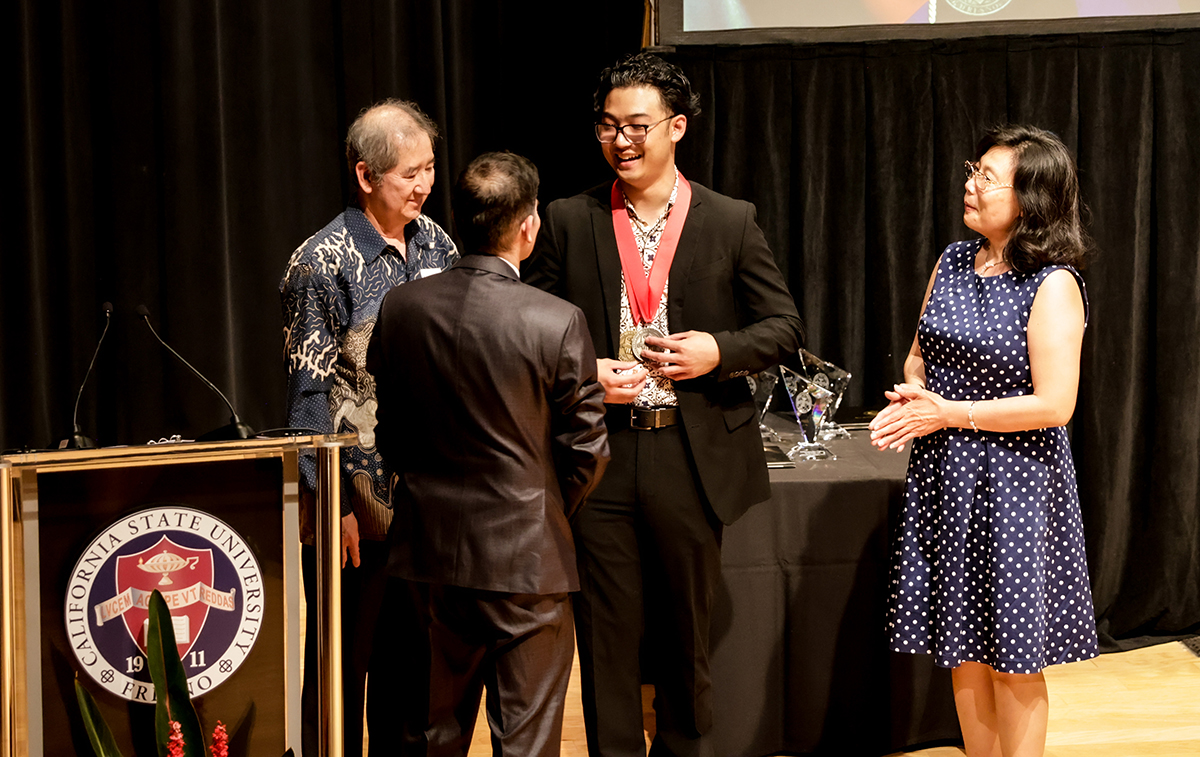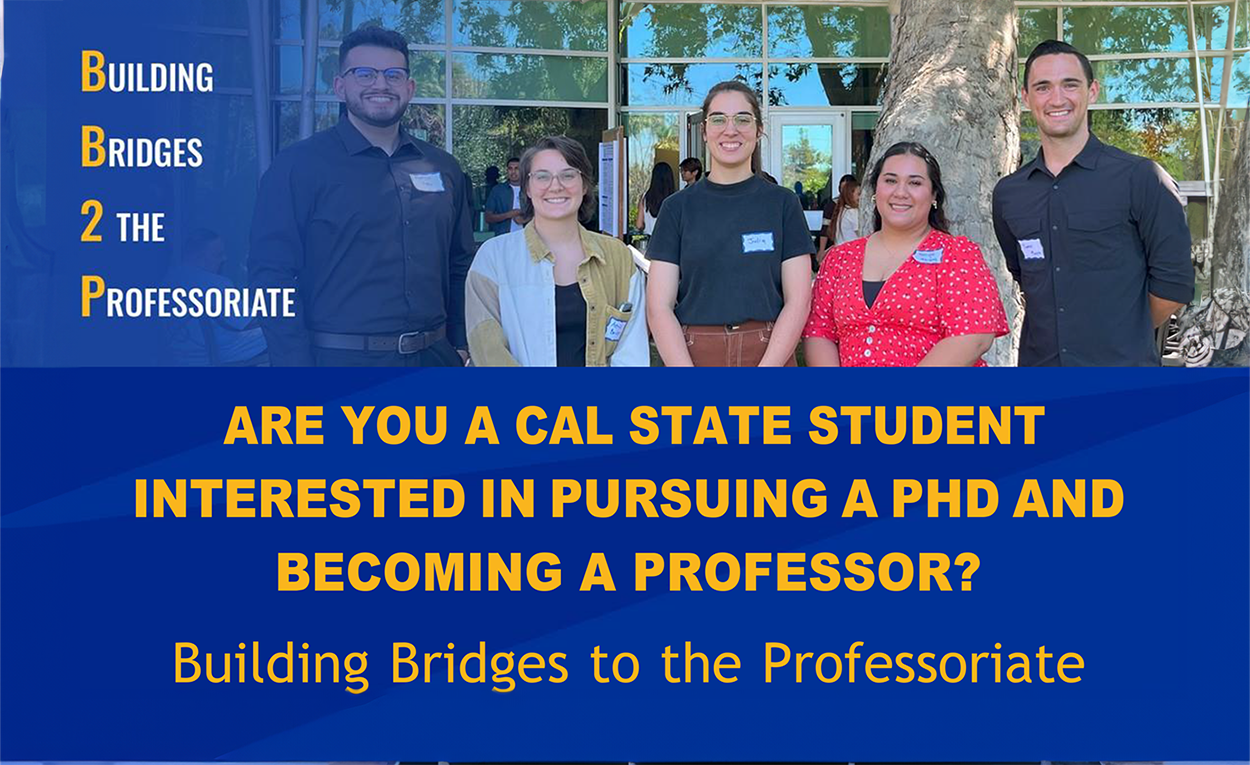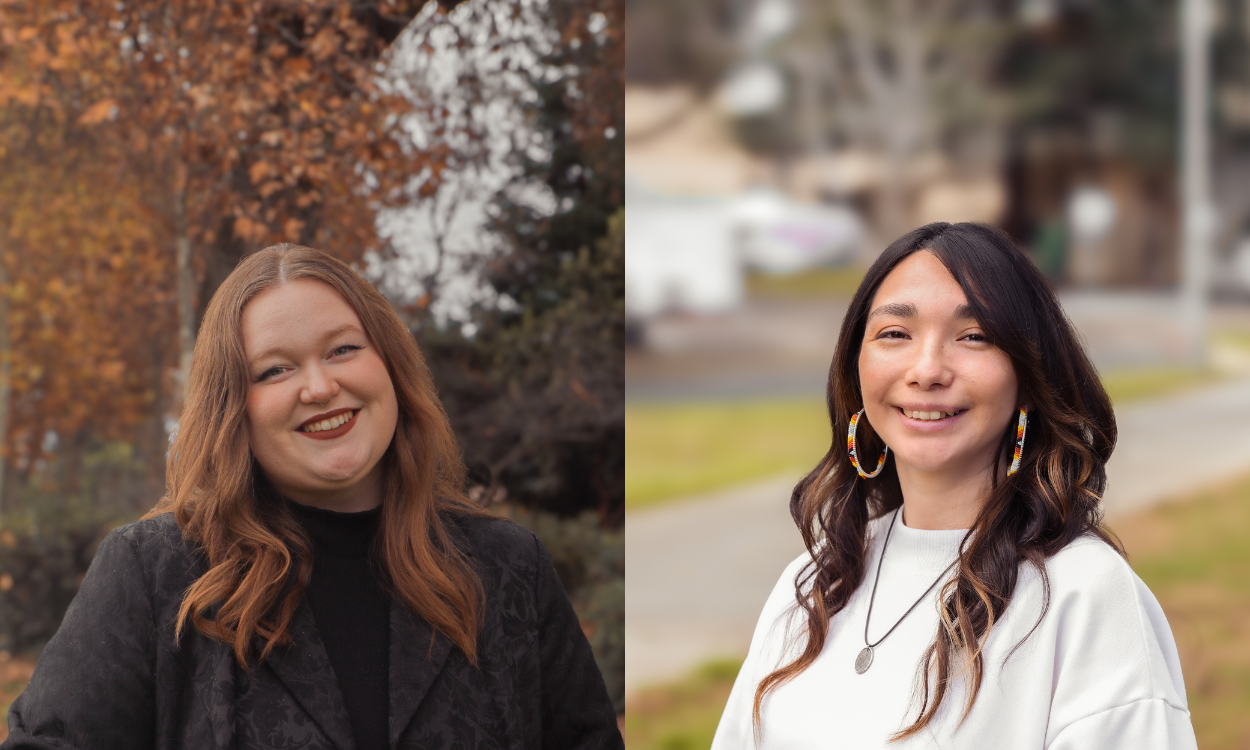Over 15 groups participated in the Science and Mathematics Carnival on Saturday, April 20.
The first-of-its-kind event, organized through the College of Science and Mathematics Dean’s office, brought together aspiring scientists of different ages and experiences.
Associate Dean Dr. Jason Bush, who spearheaded the effort, described the event as successful and said he’s looking forward to future events.
The following groups participated in the carnival.
Quiq Labs
Performed
- STEAM (Science, Technology, Engineering, Agriculture, and Mathematics) Activities
Psychology Club:
Demonstrations of the Stroop Task and other simple neuropsychological tests.
Campus Club
Tri-Beta activities include:
- Making dinosaur eggs and Valentine’s flowers.
- Creating a chemical display with baby oil.
- Coloring food.
San Joaquin Valley Younger Chemist Committee
Making Ooblek and learning about the properties of non-Newtonian fluids. Oobleck is a mixture of cornstarch and water that acts like a solid when you press it and flows like a liquid when you let it sit.
Teacher Resource Center:
Introduction to Electrical Circuits with the Makey Makey Kit. This session explores conductivity through objects like bananas, gummy bears, metal items, and conductive pencils, demonstrating which materials can and cannot complete an electrical circuit.
Psychology: size-weight illusion
The size-weight illusion involves two boxes of different sizes but the same weight. When lifted individually, the smaller box feels heavier than the larger one despite both having equal weight.
Department of Mathematics—games and puzzles:
Participants performed hands-on math games and puzzles designed to provide fun and engaging problem-solving opportunities. The challenge provided options to work alone or in teams without time constraints.
Department of Biology and Mobile Making
They provided materials for participants to construct balloon-powered race cars.
Bush Lab Group
Learning about the basics of cell theory and cancer cells.
Earth and Environmental Sciences/Geology Club
Demonstrations on:
- Ocean Acidification: Demonstrate chemical changes and impacts on marine life due to increased CO2 levels.
- Structural Resonance: Show how structures vibrate at their natural frequencies under external forces.
- Stress and Strain along the San Andreas Fault: Model seismic stress
- Lens into Petrography: Explore rock and mineral compositions through microscopic examination.
Climate Action Team:
Activities focused on waste management and sorting.
Chemistry and Biochemistry Department
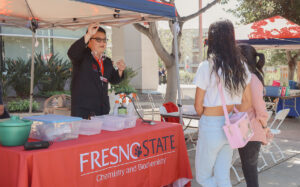
- Marble in a jar guessing game,
- UV bead bracelets,
- Slime making,
- Chemistry demos.
The Ross Laboratory of Genetics and Development
- How microscopic worms help us understand genetics
Computer Science Department
Using a jeopardy contest to get young students familiar with computer science terminologies or history
